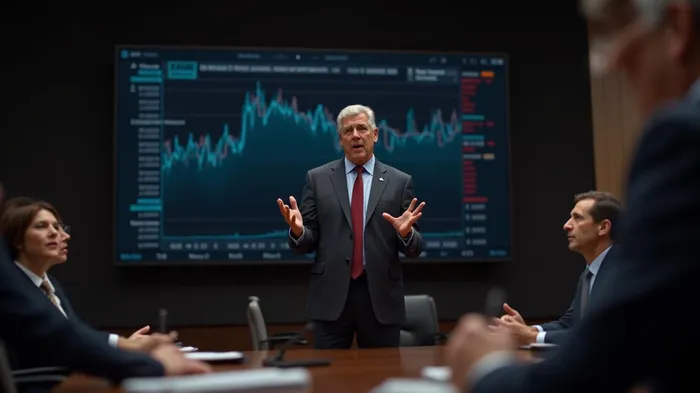Kevin Warsh Considered for Fed Chairman Amid Policy Shift Debate
Kevin Warsh, a former Federal Reserve governor, is being considered as a potential candidate for the position of Fed chairman, which may become vacant next year. Warsh served on the Fed's board from 2006 to 2011 and has been vocal about his views on monetary policy and the central bank's independence. His potential nomination has ignited discussions about the future direction of the Fed and the implications for the U.S. economy.
Warsh has been critical of the Fed's quantitative easing programs, asserting that they have distorted financial markets and created asset bubbles. He has also expressed concerns about the Fed's role in regulating the financial system, suggesting that the central bank should prioritize its traditional mandate of price stability and full employment. Warsh's views on these issues have been influenced by his experience as a Fed governor and his subsequent work in the private sector, where he has advised clients on economic and financial matters.
If nominated, Warsh would bring a unique perspective to the Fed, informed by his experience in both the public and private sectors. His views on monetary policy and financial regulation would likely shape the Fed's approach to these issues, potentially leading to a shift in the central bank's policies. However, Warsh's nomination would also face significant challenges, including opposition from some lawmakers and economists who disagree with his views on the Fed's role and responsibilities.
Warsh's potential nomination has also raised questions about the future of Fed independence. Some analysts have suggested that Warsh's appointment could be seen as an attempt by the Trump administration to exert more control over the central bank, potentially undermining its independence. However, Warsh has been a strong advocate for Fed independence, arguing that the central bank must be free to make decisions based on economic data and not political pressure.
Warsh's views on monetary policy and financial regulation have been shaped by his experience as a Fed governor and his subsequent work in the private sector. He has been critical of the Fed's quantitative easing programs, arguing that they have distorted financial markets and created asset bubbles. He has also expressed concerns about the Fed's role in regulating the financial system, suggesting that the central bank should focus more on its traditional mandate of price stability and full employment.
Warsh's potential nomination has sparked discussions about the future direction of the Fed and the implications for the U.S. economy. If nominated, he would bring a unique perspective to the Fed, one that is informed by his experience in both the public and private sectors. His views on monetary policy and financial regulation would likely influence the Fed's approach to these issues, potentially leading to a shift in the central bank's policies. However, Warsh's nomination would also face significant challenges, including opposition from some lawmakers and economists who disagree with his views on the Fed's role and responsibilities.

Quickly understand the history and background of various well-known coins
Latest Articles
Stay ahead of the market.
Get curated U.S. market news, insights and key dates delivered to your inbox.



Comments
No comments yet